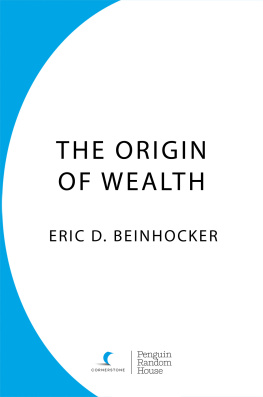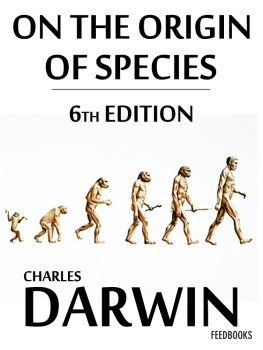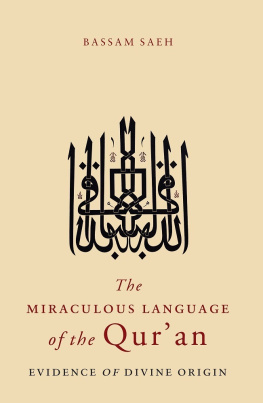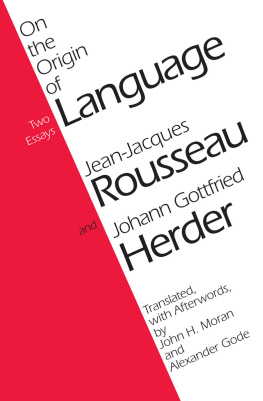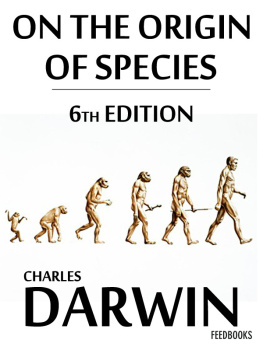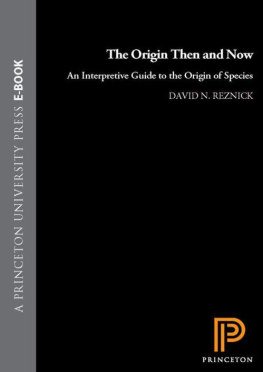Eric Gans - The Origin of Language: A New Edition
Here you can read online Eric Gans - The Origin of Language: A New Edition full text of the book (entire story) in english for free. Download pdf and epub, get meaning, cover and reviews about this ebook. year: 2019, publisher: Spuyten Duyvil Publishing, genre: Romance novel. Description of the work, (preface) as well as reviews are available. Best literature library LitArk.com created for fans of good reading and offers a wide selection of genres:
Romance novel
Science fiction
Adventure
Detective
Science
History
Home and family
Prose
Art
Politics
Computer
Non-fiction
Religion
Business
Children
Humor
Choose a favorite category and find really read worthwhile books. Enjoy immersion in the world of imagination, feel the emotions of the characters or learn something new for yourself, make an fascinating discovery.

- Book:The Origin of Language: A New Edition
- Author:
- Publisher:Spuyten Duyvil Publishing
- Genre:
- Year:2019
- Rating:5 / 5
- Favourites:Add to favourites
- Your mark:
- 100
- 1
- 2
- 3
- 4
- 5
The Origin of Language: A New Edition: summary, description and annotation
We offer to read an annotation, description, summary or preface (depends on what the author of the book "The Origin of Language: A New Edition" wrote himself). If you haven't found the necessary information about the book — write in the comments, we will try to find it.
The Origin of Language: A New Edition — read online for free the complete book (whole text) full work
Below is the text of the book, divided by pages. System saving the place of the last page read, allows you to conveniently read the book "The Origin of Language: A New Edition" online for free, without having to search again every time where you left off. Put a bookmark, and you can go to the page where you finished reading at any time.
Font size:
Interval:
Bookmark:
The Origin of Language
A New Edition
Eric Gans
Introduction by Adam Katz

Spuyten Duyvil
Introduction:
The Origin of Language
and the Anthropological Imagination
In this new edition of The Origin of Language , originally published in 1981, Eric Gans provides a hypothesis for the origin of language, and then extends that hypothesis to account for the most fully developed linguistic form, the declarative sentence. In doing so, he shows how the earliest human group would have gone from using a single, ostensive sign, to a variety of ostensive signs, to the use of imperatives and then, finally, the declarative sentence.
It is astonishing that no one had ever considered the necessity of doing something like this, much less attempted it, because how else could one have imagined that humans would have gone from no language at all to such complex linguistic structures as the subject-predicate relation comprising the declarative sentence? Gans shows how the sequence he follows here is the only plausible way of imagining the evolution of the earliest linguistic forms, and he does so by analyzing the sequences in intricate detail, addressing everything that is necessary to account for linguistic evolution, and nothing that isnt. The Origin of Language remains as completely original and unprecedented (and intellectually demanding and satisfying) today as when it was originally published, so much so as to constitute a kind of intellectual scandal.
In all of the decades in which immense intellectual energy has been put into dismantling and deconstructing metaphysics, hardly a single one of our leading thinkers has found it necessary to address the startlingly simple definition provided by Gans: metaphysics is the assumption that the declarative sentence is the primary linguistic form . And if you assume that the declarative sentence is the primary linguistic form, you will never think to ask, or to think one can ask, whence it derivedeven if a moments reflection must convince us that it must have derived from some previous linguistic form. If you dont ask these elementary questions, you remain within metaphysics, regardless of how you have implicated it in power relations, or Eurocentrism, or technology, or whatever. Gans, in this book, stays focused on the dialectic of the linguistic forms, without many side comments on metaphysical obfuscation, because how could he point out that every moment in that dialectic is obscured by metaphysical assumptions and still get on with the only work that could really clear out those assumptions?
I hope that the effect of this publication of a condensed edition of Eric Ganss The Origin of Language , originally published by the University of California Press in 1981, will be to make Ganss work visible. I dont just mean visible in the sense of more widely available, or more effectively publicized, although those things would be nice as well. I mean visible in the sense of no longer occluded, conceptually, by the reigning language games and problematics in the human and social sciences. We have known for a long time that inquiry takes place within a Gestalt, or frame, that makes some things visible, other things obvious and other things invisible or unthinkable. Thats why science advances through epistemological breaks that dont just correct previous mistaken conclusions, but reorganize the entire field on conceptual terms. For there to be any possibility that this will happen, though, discoveries must be made that, as Michael Polanyi argued, must be not only true, but also interesting, and more particularly, interesting to science (66). What is interesting is generally what continues along the paths already laid out by scientific authority and tradition, reinforced institutionally in many ways.
Polanyi provides an example of how scientific theories get sorted out into interesting and not interesting from the reception of a paper by Lord Rayleigh, published in The Proceedings of the Royal Society in 1947:
It described some fairly simple experiments which proved, in the authors opinion, that a hydrogen atom impinging on a metal wire could transmit to it energies ranging up to a hundred electron volts. Such an observation, if correct, would be far more revolutionary than the discovery of atomic fission by Otto Hahn in 1939. Yet when this paper appeared, and I asked various physicists opinions about it, they only shrugged their shoulders. They could not find fault with the experiment, yet they not only did not believe its results, but did not even consider it worthwhile to consider what was wrong with it, let alone check up on it. They just ignored it. About ten years later some experiments were brought to my notice which accidentally offered an explanation of Lord Rayleighs findings. His results were apparently due to some factors of no great interest, but which he could have hardly have identified at the time. He should have ignored his observation, for he ought to have known that there must be something wrong with it. The rejection of implausible claims has often proved mistaken, but safety against this danger could be assured only at the cost of permitting journals to be swamped by nonsense. (65)
What makes a claim implausible is its misfit with the prevailing research program, and Polanyis example is of a case where that misfit turned out to be a reliable indicator of the observations falsity. But if such rejection proves mistaken, what remedies are available? In the physical sciences, we might be able to expect self-correction and what Polanyi calls mutual control to maintain steady progress towards a more truthful and comprehensive understanding of the natural world; at any rate, it serves no purpose of mine to contend otherwise here. In the human sciences, though, interesting is a far more loaded term, as is implausible, since these sciences contain far more disagreement regarding the basic assumptions of what constitutes a legitimate research program, and are far less able to control for (and perhaps should not exactly control for) the moral, ethical, religious and political convictions of the inquirer. The only remedies here lie in pointing out the sources of the refusal to grant sufficient interest and plausibility to an observation to make it worth ones while to even check up on it. These sources would be obstacles to scientific thought, of the kind Gaston Bachelard psychoanalyzes in his The Formation of the Scientific Mind . In this case, the identification of such obstacles would not only aid in making the more genuinely scientific theory more visible, but would serve as a demonstration of the power of the theory. I will right away give a name to the primary obstacle, which includes the others I will mention below: the anthropomorphism of the human , that is, the explanation of human activity by qualities that rely upon the prior constitution of the human, which is in turn simply taken as given. In other words, anything we could say about human beings always already presupposes beings capable of languagethis capability is therefore retrojected back to the earliest models of humanity we can imagine, making entertaining an originary hypothesis that would have the human and language emerging together extraordinarily difficult.
Eric Ganss originary hypothesis of the origin of language runs up at every point against the anthropomorphism of the human. I think the most obvious source of opposition is the prevalence of what Gans has examined very thoroughly over the past several decades, and has recently described (in his online Chronicle of Love and Resentment 563, Victimary Humanism) as extreme humanism: what he has termed victimary thinking. Victimary thinking, as a product of the twin iconic markers of World War II, Auschwitz and Hiroshima, frames all inequalities as instances of oppression, to which the Nazi-Jew model can be applied, in a social and technological environment in which the potential for violence is virtually unlimited. For victimary thinking, although this may be expressed with greater or less explicitness, any ascriptive difference, that is, any inherent difference between groups, portends unacceptable levels of violence. And we have more recently discovered (as Gans shows in the aforementioned Chronicle ) that any difference can ultimately be framed as an ascriptive one, that is, attributed to racism, sexism, homophobia, transphobia, Islamophobia, and so on. Ganss hypothesis, meanwhile, locates the origin of language and hence of the human in the unanimous acceptance of the sign as the deferral of violence on a scene of extreme mimetic danger. There is no room for ascriptive differences there, no way of conceiving of the scene as an exclusionary one, even if it is possible to conceive of it as an uneven one, in which the sign is repeated in different ways at different paces by the members on the scene. So, the originary hypothesis provides no foothold for victimary thinkingindeed, it seems unlikely that contemporary thinkers of the victimary could even find much use in evoking the egalitarian hunter-gatherer communities that once inspired the left, insofar as the various exclusionary elements of those communities are all too evident. If one were to devise a theory directly aimed at occluding the originary hypothesis, one could not do better than victimary thinking, which is perhaps why Gans has found it interesting and, perhaps, in its own way, plausible: victimary thinking isolates and thereby brings into heightened focus a single moment of the originary scene, the equality or symmetry of all before the sacred center, while obscuring all other pertinent elements of the scene, such as the existence of the center itself.
Next pageFont size:
Interval:
Bookmark:
Similar books «The Origin of Language: A New Edition»
Look at similar books to The Origin of Language: A New Edition. We have selected literature similar in name and meaning in the hope of providing readers with more options to find new, interesting, not yet read works.
Discussion, reviews of the book The Origin of Language: A New Edition and just readers' own opinions. Leave your comments, write what you think about the work, its meaning or the main characters. Specify what exactly you liked and what you didn't like, and why you think so.

